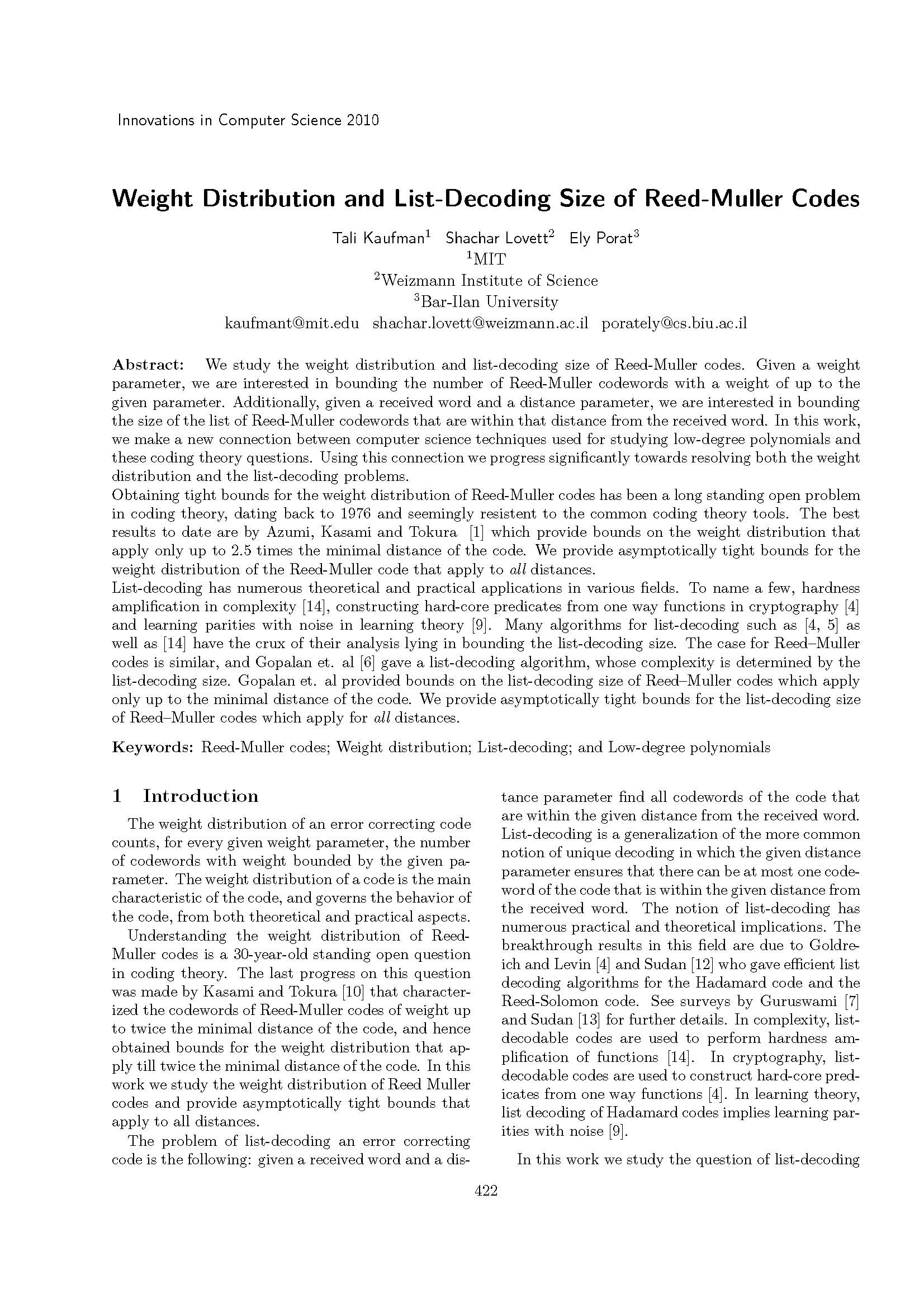ICS 2010
|
|
Welcome to ICS2010
Innovations in Computer Science - ICS 2010, Tsinghua University, Beijing, China, January 5-7, 2010. Proceedings, 422-433,
978-7-302-21752-7
Tsinghua University Press
Obtaining tight bounds for the weight distribution of Reed-Muller codes has been a long standing open problem in coding theory, dating back to 1976 and seemingly resistent to the common coding theory tools. The best results to date are by Azumi, Kasami and Tokura [1] which provide bounds on the weight distribution that apply only up to 2:5 times the minimal distance of the code. We provide asymptotically tight bounds for the weight distribution of the Reed-Muller code that apply to all distances. List-decoding has numerous theoretical and practical applications in various fields. To name a few, hardness amplification in complexity [15], constructing hard-core predicates from one way functions in cryptography [4] and learning parities with noise in learning theory [10]. Many algorithms for list-decoding such as [4, 6] as well as [15] have the crux of their analysis lying in bounding the list-decoding size. The case for Reed–Muller codes is similar, and Gopalan et. al [7] gave a list-decoding algorithm, whose complexity is determined by the list-decoding size. Gopalan et. al provided bounds on the list-decoding size of Reed–Muller codes which apply only up to the minimal distance of the code. We provide asymptotically tight bounds for the list-decoding size of Reed–Muller codes which apply for all distances. Preview: 
|
Copyright 2009-2010, Institute for Computer Science, Tsinghua University, All Rights Reserved.


